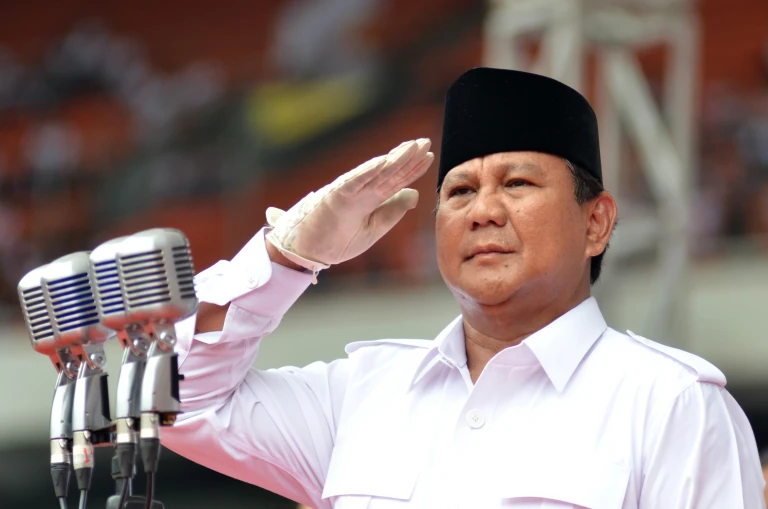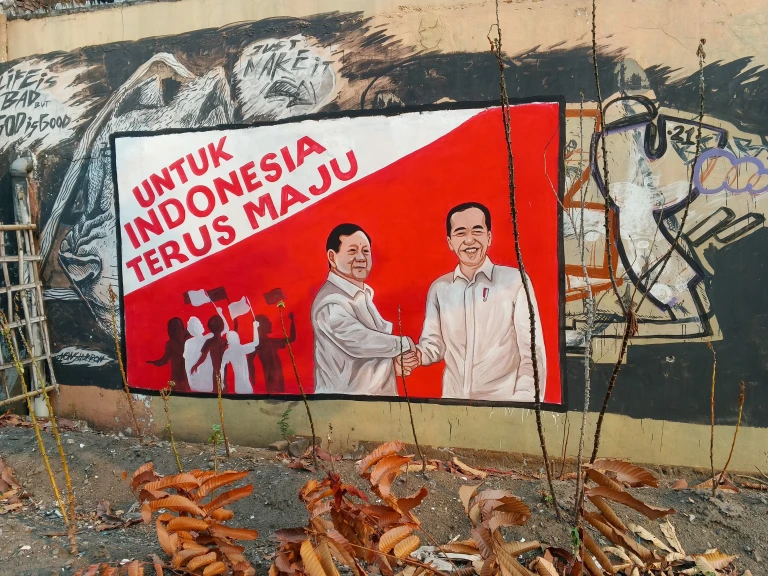On February 14, direct presidential elections were held in Indonesia. Interestingly, here, simultaneously with the head of the country, the vice-president is also elected. In other words, citizens voted for the presidential and vice-presidential duo.

The Indonesian leader will remain in office for 5 years, so the next elections in the country will be held in 2029. According to Article 7 of the Indonesian constitution, two presidential terms are the maximum, and the newly elected servant of the people can hold the position of the head of the country for no more than 10 years. For this reason, the current president, Joko Widodo, could not run for re-election.
Voters received at least four ballots: one for the president and vice-president, and three more for voting for the People's Consultative Assembly (DPR), the Regional Representative Council (DPD), and the Regional People's Representative Council (DPRD Provinsi). Outside Jakarta, voters received an additional ballot for voting in the People's Representative Council of regencies or cities.
Using a nail or another simple device, voters punched a hole in the ballot, indicating which party or candidate they chose, and then dipped their fingers in ink as a precaution against vote tampering. Therefore, on February 14, the streets were filled with a large number of people with blue-inked fingers. More than two hundred million citizens of the country participated in the voting. Considering that Indonesia has a total population of 273 million, the turnout is quite significant. For comparison, in the United States, the last elections were attended by 158 out of 240 million eligible voters. This may indicate that Indonesian citizens believe in both the electoral system and their ability to influence the fate of their country.
The current head of Indonesia, a fan of the band 'Metallica' and still very popular among the population, known as Jokowi, will remain in the presidential seat until the inauguration of the new elected leader, which is scheduled for October 20 of this year. Then, Widodo will step down from his position.
The 2024 pre-election race was represented by three main candidates:
- Prabowo Subianto
- Anies Baswedan
- Ganjar Pranowo
In Indonesia, during presidential elections, a second round is possible if none of the candidates receives more than 50% of the votes. It would have taken place in June, but it seems that it won't be necessary.
Officially, the election results will not be announced soon; it takes up to 35 days for this process. Currently, according to exit polls, Prabowo Subianto and his vice-president, Gibran Rakabuming, lead with 56% of the votes.
Subianto is running for president for the third time. A former defense minister, in his pre-election program, he promised to create more jobs, develop small and medium-sized businesses, and ensure the improvement of the population's well-being. In the security sphere, he guaranteed the fight against terrorism, strengthening the army, and, of course, support for law and order. In foreign policy, he plans to maintain neutrality, develop relations with all countries, and protect Indonesia's interests on the international stage. In addition, Prabowo promises to actively combat corruption in the country, a significant issue in Indonesia. Overall, he pledges to continue the country's development in the spirit of the current president, indirectly confirmed by the fact that he chose Jokowi's 36-year-old son, Gibran Rakabuming, as his vice-president. This caused a significant public resonance, especially considering that the age requirement for the vice-president position was lowered from 40 to 35 before the elections, allowing Jokowi's son to participate in the elections.

According to preliminary data, Prabowo won in the majority of provinces, including Java, Sumatra, and Kalimantan. Former Governor of Bali Wayan Koster expressed surprise that, according to estimated counts, Prabowo received the majority of votes even in Bali. Before the results were announced, he expected that the pair of Ganjar-Mahfud would secure the majority on the island with results ranging from 80-95 percent.
Anies Baswedan follows in second place with 25 percent, gaining the most support in Jakarta and West Java. Ganjar Pranowo is in third place with 18 percent, winning in his home province of Central Java.
Opinions in the country regarding the potential future president are highly polarized. Many consider Prabowo to be insufficiently young at 72 years old and excessively populist. Some are concerned that Prabowo Subianto's victory may lead to an increase in authoritarian tendencies in the country. There are mentions of his past involvement in human rights violations and military crimes in East Timor. During Indonesia's occupation, nearly a quarter of the population of East Timor perished from hunger and war. Prabowo was accused of organizing the abduction of Indonesian pro-democracy fighters during the final years of the thirty-year authoritarian regime of Suharto in the late nineties. Due to these scandals, he was even banned from entering the United States for 20 years. Currently, families of activists who were tortured and abducted 25 years ago are shocked by his election and hold protests in Jakarta. Prabowo himself stated that special operations were part of his job at the time, emphasizing that it was legal back then and expressing readiness to face punishment if anyone now believes otherwise. In general, Indonesia's new leader has a complex past.
The potential benefits of his future presidency include his extensive experience in government. As a former Minister of Defense, he plans to focus on the country's military security, which can be quite useful in the current turbulent world.
You can add one right now!